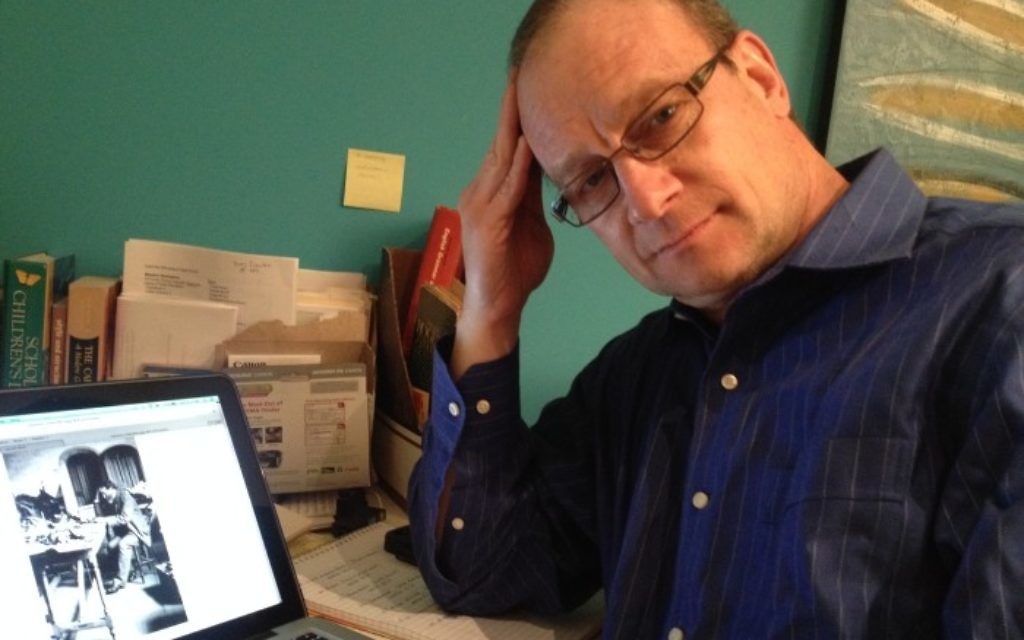Federation: Looking Back, Looking Forward
And then I said it.
“Next year, don’t write a check. Take yourself to Israel and see for yourself what the fuss is all about.”
That may not have been the most judicious choice of words.
Get The AJT Newsletter by email and never miss our top stories Free Sign Up
Not at a Jewish Federation event — in my wife’s hometown.
We recently had returned after nearly two years in Israel, most if it spent working in the Jerusalem bureau of an international television news network.
I knew this community, having spent several years there reporting for a local newspaper.
This community straddles a river.
On one side was the Conservative congregation in which my wife grew up. On the other, of course, was a Reform congregation.
There were about 100 people in the audience that night, including my wife’s paternal grandmother.
When it was my turn, I gave an overview of the situation in Israel. I talked about notables I had interviewed, those whose names the audience would recognize, and stories I had covered in Israel and elsewhere. I probably used one of my favorite lines — that issues may appear black and white from a distance but up close are shades of gray.
And then I said it.
I prefaced my suggestion by citing an estimate that only one in four American Jews had visited Israel.
I don’t recall the reaction of our Federation hosts. I doubt they were pleased.
That experience aside, I remain available to address Federation or other Jewish communal events.
In the process of writing about the future of the Jewish Federation of Greater Atlanta, I read dozens of articles about the past and present of Jewish communal life in this country and the Jewish Federation movement in particular.
I talked with people who work for and with JFGA, as well as others involved in Jewish communal affairs in Atlanta and elsewhere in the country.
A number of people were willing to speak with me provided that I not use their names. As the largest player in the local Jewish world, JFGA involves some of the most prominent and wealthiest members of the community. There is, therefore, an understandable sensitivity about having one’s name attached to anything that might be taken as criticism.
I appreciate the time taken by the lay leaders and professional staff of JFGA in talking with me and thank them for their patience in answering my questions.
As with lengthy articles I have written for this newspaper about Holocaust survivors, Leo Frank and Jewish-Catholic relations, writing about the Jewish Federation was an opportunity to study an aspect of Jewish life with which I had a passing but hardly deep familiarity.
As a “legacy” organization, with roots laid more than a century ago, Federation faces challenges as it seeks to remain relevant in the 21st century.
Not the least of these is to attract the millennial generation — young adults born after 1980 — who are said to be more cause-oriented than loyal to organizations and more demanding of transparency from recipients of their donations.
JFGA is in transition, seeking a new chief executive officer as it implements a new strategic plan and updates a decade-old profile of the community.
As individuals and through its communal organizations, Jewish Atlanta forms its own safety net, and Federation provides major support for that net.
Federation funds schools, social service agencies and other organizations that care for those in need, young and old, singles and families; that educate students of all ages; and that encourage a culture of participation in Jewish life.
You can donate to Federation, whose staff and lay leaders are dedicated to identifying communal needs and making sure that any gaps in services are filled. Or you can do the research yourself and donate directly to causes of personal interest.
Regardless, every dollar counts.
By the way, I still believe that American Jews who have not been to Israel (and the current estimate is that only 40 percent have) should make the trip. Even if that means forgoing a charitable contribution.
Yes, I said it.





comments